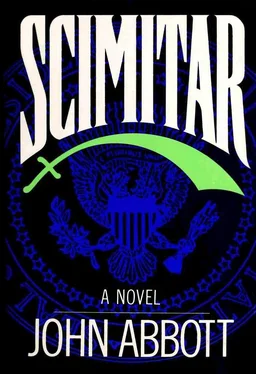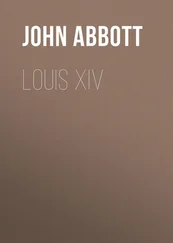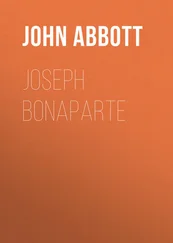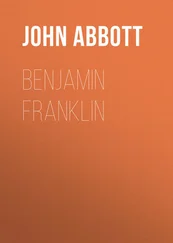“That’s exactly the case,” Heatherton said.
“Then where do they live?”
“There are thirteen Holmeses in the London directory, and two of them are Reginalds. Neither of them had ever heard of a woman named Gillian Holmes.”
“How about Henley?”
“Not a single Jocelyn Bradshaw there.”
“Mmm,” Geoffrey said.
“Or in London, either, for that matter. We checked on the offchance.”
“Mmmm.”
“Yes. Exactly what we wondered.”
“How do you mean?”
“Why the false names?” Heatherton said.
“Yes.”
“Yes,” Heatherton said.
“And what did you conclude?”
“Well, that’s what’s taken me so long to get back.”
“Miles, I seem to be having enormous difficulty following you tonight. Perhaps you ought to ring me sometime tomorrow morning, when we’ve both had...”
“The passport could have been issued anywhere in the U.K., you see, even though you’d told me it was written in London.”
“Yes. Last June.”
“The woman was how old?”
“She listed her date of birth as 1943.”
“That would have made her forty-nine.”
“Yes.”
“And she’d never had need of a passport till last year? Woman living so close to the Continent? Never traveled abroad in all her forty-nine years?”
“Well, perhaps she was a homebody,” Geoffrey said. “Or this may have been a simple renewal.”
“No, it wasn’t a renewal. Nor quite that simple, either.”
“How do you know?”
“We’ve run her through, Geoff.”
“Run her...”
“Through the computer, yes. That’s what’s taken all this time. I must admit I didn’t like the smell of it from the start. Otherwise, I’d have let it go till morning. But...”
“Perhaps you should have done,” Geoffrey said. “I really hate to see you working so late on my be...”
“In retrospect, I’m glad I didn’t. She’s not in the computer, Geoff.”
“How do you mean?”
“I mean the British government has issued scores of passports to women named Gillian Holmes over the years, but none of them was born on February 9, 1943, in Colchester, England.”
“Then...”
“Moreover,” Heatherton said, “the number on the passport, although valid, was the number issued to a Scottish passport holder named Hamish Innes McIntosh, who was born in Glasgow on the third of November, 1854, and who most certainly should be dead by now.”
There was a long silence on the line.
“Then you’re saying the passport is counterfeit,” Geoffrey said.
“Yes, dear boy,” Heatherton said. “That’s precisely what I’m saying.”
She had looked for him at lunchtime and again at dinner, but he had not come to the dining car, and she was beginning to wonder if he’d taken ill. Well, he was a doctor, he should know how to take care of himself, and yet she was concerned. The man sitting across from her at dinner was an elderly tractor salesman from Burbank, who was on his way to Chicago to meet with a son from whom he’d been estranged for the past seven years. His eyes welled with tears when he talked about the young man, who sounded like a Grade-A shit to Elita.
The man explained to her that they had crossed over from Mountain Time to Central Time when they’d left El Paso at six P.M., at which time she should have set her watch ahead an hour, although she wouldn’t have to touch it again because it would remain Central Time all the way to Chicago. But, of course, if she was traveling on to New York...
“Yes, I am,” she’d said.
... then she’d have to set it ahead yet another hour when they crossed over from Valparaiso, Indiana, to Warsaw, Indiana. He warned her to be very careful in New York, as it was a very dangerous city. She had the good grace not to tell him she’d been born and raised there.
On her watch now — which, as instructed, she’d set ahead at the dinner table — it was already twelve minutes to midnight, wherever they were. They had left the station in Little Rock at eleven-thirty or thereabouts, so she guessed they were still in Arkansas, although it all looked the same out there in the dark. She wondered again if Sonny was sick. She thought of going back to the dining car to ask the porter who’d served them breakfast if he knew what had happened to the Indian gentleman. Half British , Mom, don’t forget. Was it possible he’d got off the train earlier than she’d expected? But he’d told her he was traveling to New York.
She left her seat in the coach section, and walked forward to what they called the Sightseer Lounge, which was a two-story car with a café on the lower level and these huge wraparound picture windows upstairs. She looked briefly into the café. A waiter was leaning against the serving counter. Otherwise, the place was empty. She debated going back to her seat, and then went upstairs instead.
He was sitting in one of the lounge chairs at the far end of the car.
Looking out at the star-drenched night.
Thoroughly absorbed in his own thoughts.
So very beautiful.
“Hi,” she said.
He turned, looked up, smiled.
“Hi,” he said.
“Mind if I join you?”
“Please,” he said.
She took the chair alongside his.
“Are you okay?” she asked.
“Sure.” A puzzled look crossed his face. “What do you mean?”
“I haven’t seen you around,” she said.
“I looked for you at lunch,” he said.
“Oh? When was that?”
“Around two.”
“I went in at noon.”
“Must’ve missed you then,” he said.
“Too bad,” she said.
Silence.
The stars wheeling overhead. The night flashing by.
“Did you have dinner?” she asked.
“No, I wasn’t very hungry.”
“Well, sure, if you eat lunch so late.”
Silence again.
The rattle of the wheels over the tracks, the evenly spaced clickety-clacks. Outside, the telephone wires swooped and dipped from pole to pole, and clouds scudded across the sky.
“Which car are you in?” she asked.
“I’ve got a sleeper,” he said.
“Doctors must make a lot of money.”
“Not this doctor. My mother paid for it.”
“Ah.”
“Ah,” he repeated.
Another silence, longer this time.
“Listen, would you like to be a good Samaritan?” she asked.
“Sure.”
“I mean, if it isn’t any trouble.”
“No trouble at all.”
“I ordered a scotch at dinner and they carded me, would you believe it? I mean, on a goddamn train — where you have to change your watch every five minutes and you never know where the hell you are — they refuse to serve me ’cause I’m not twenty-one. Could you do me an enormous favor and ask the waiter downstairs for a scotch and soda, please, before I die of thirst?”
“I’d be happy to,” he said, and got up at once.
“Wait, let me...”
But he was already on his way.
He came back with two drinks in actual glasses, never mind cardboard containers. His estimation in her eyes went up at least two-thousand percent; she hated to drink whiskey in anything but a glass.
“How much do I owe you?” she asked.
“Don’t be ridiculous.”
“Is your mother paying for these, too?”
“Cheers,” he said in dismissal, and clinked his glass against hers.
“I owe you one,” she said. “Cheers.”
They both drank.
“You have no idea how good this tastes,” she said. “What are you drinking?”
“Gin.”
“I’ve never developed a taste for gin,” she said.
“I feel the same way about scotch.”
They sat sipping their drinks.
Читать дальше












